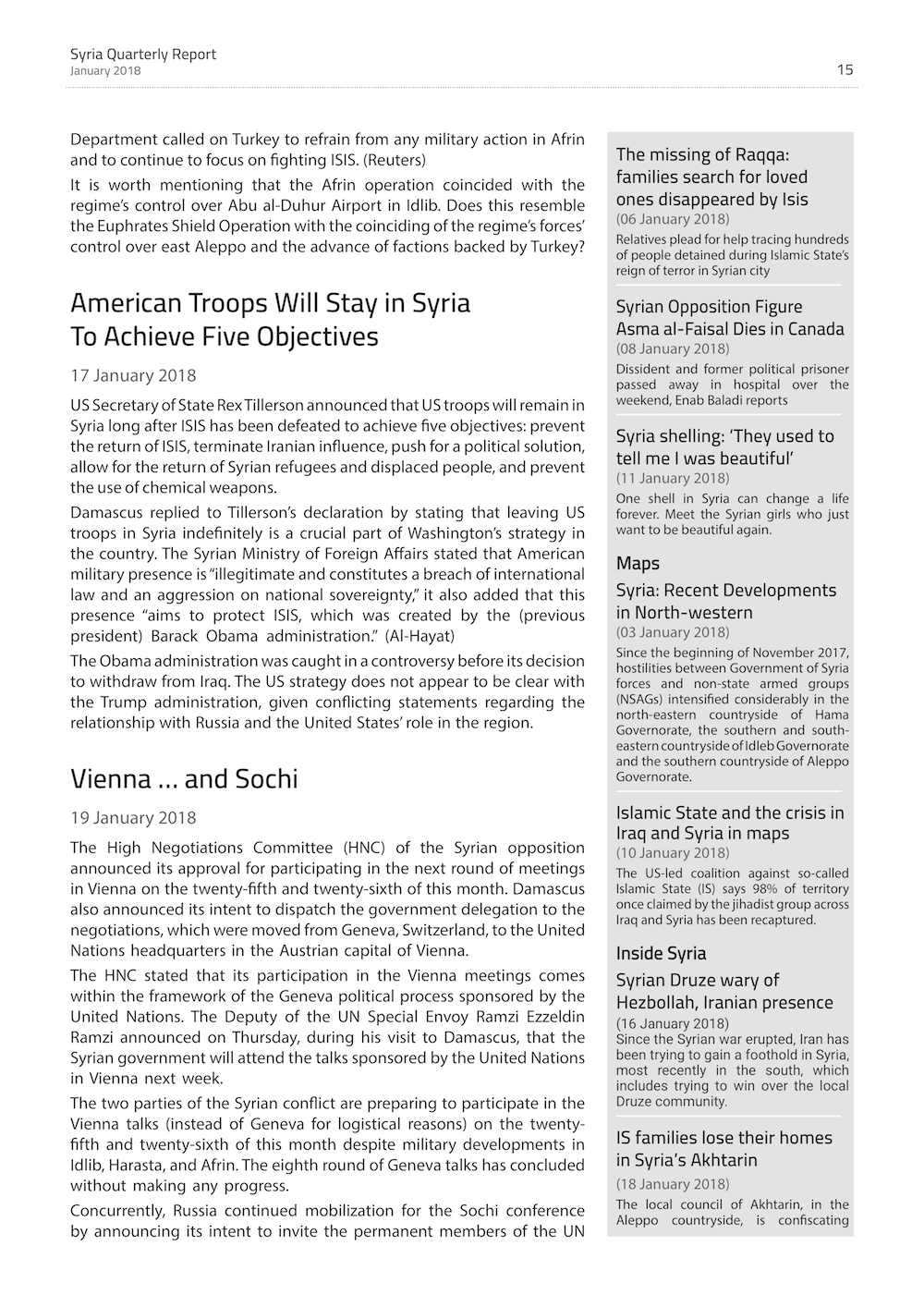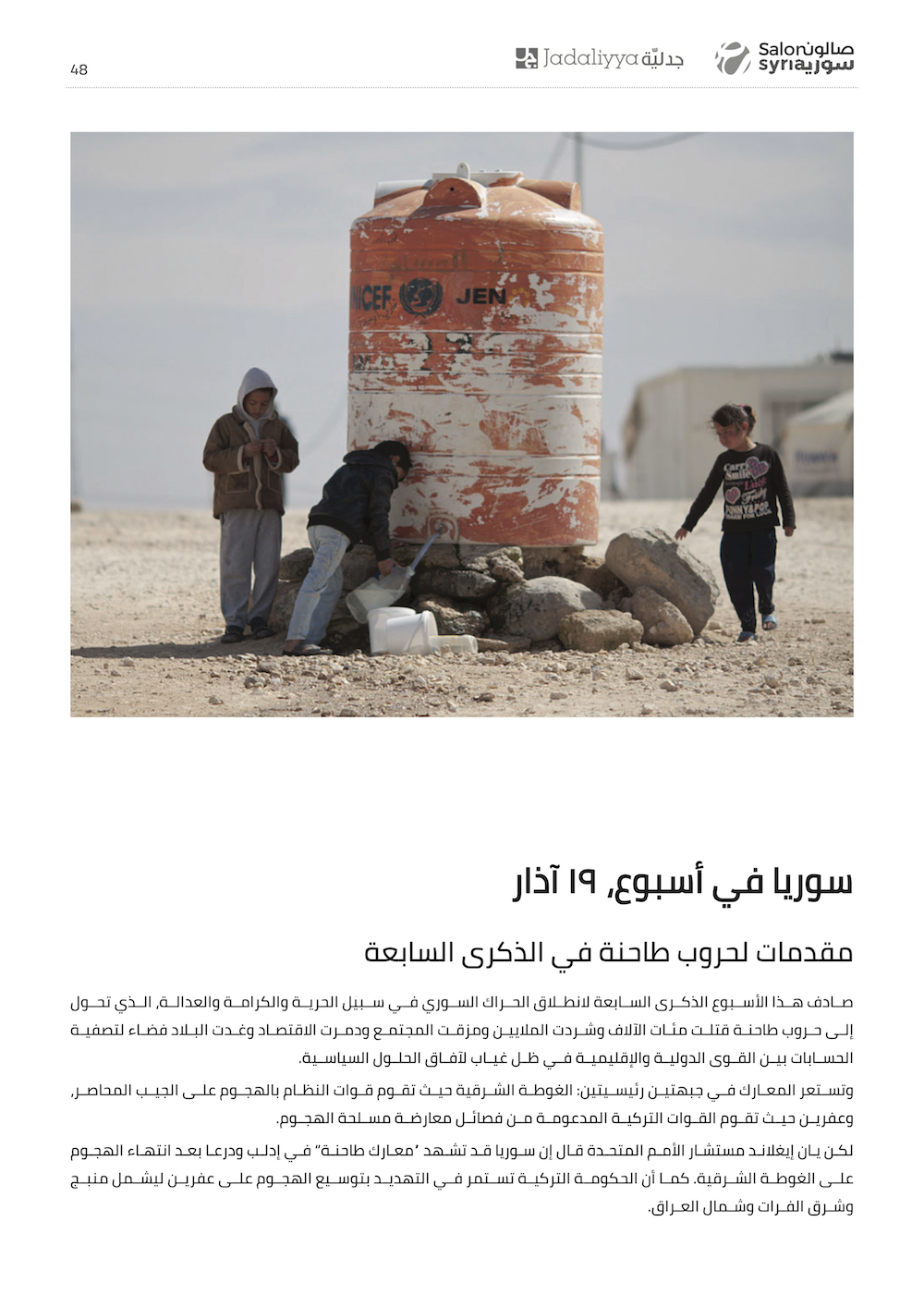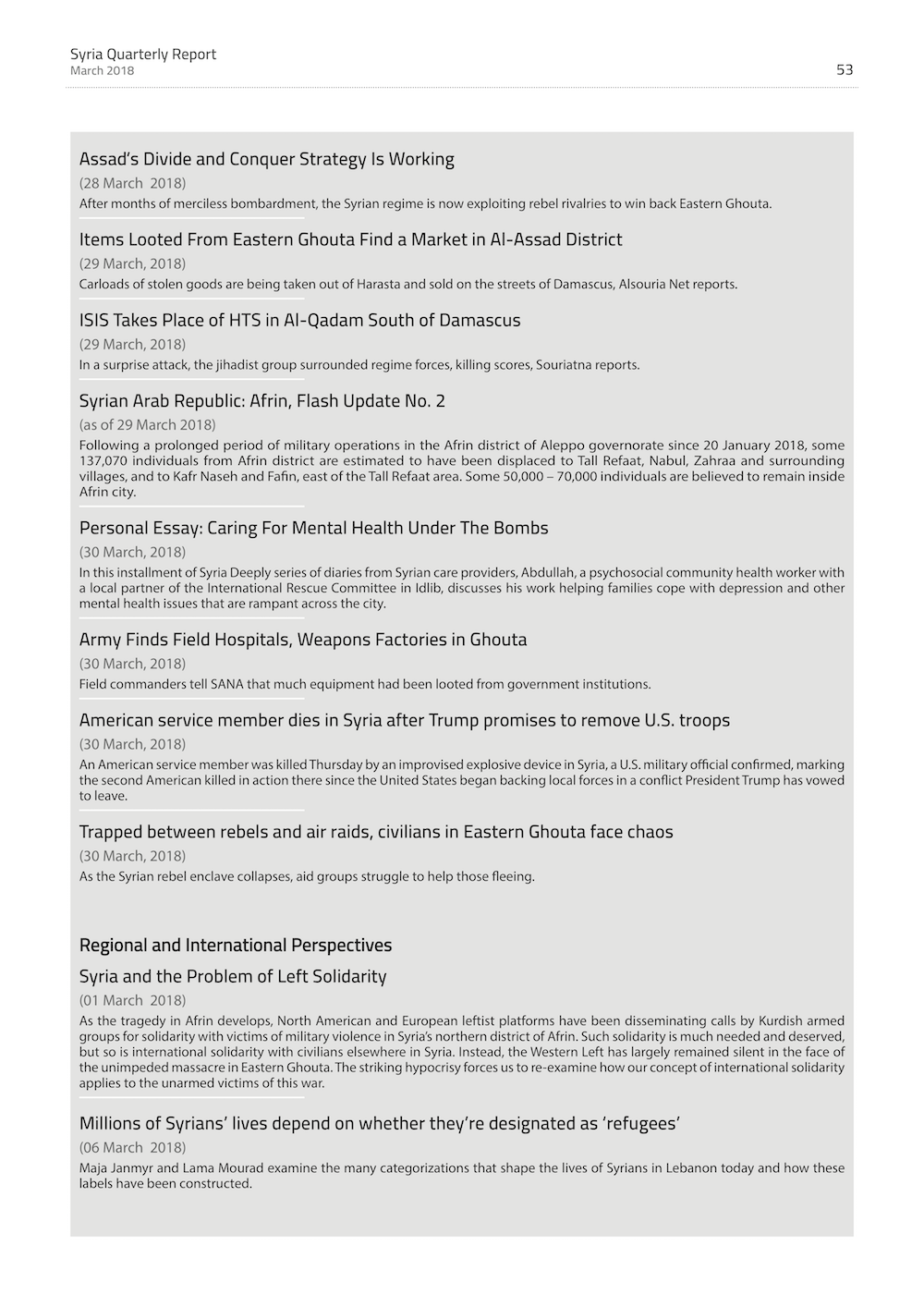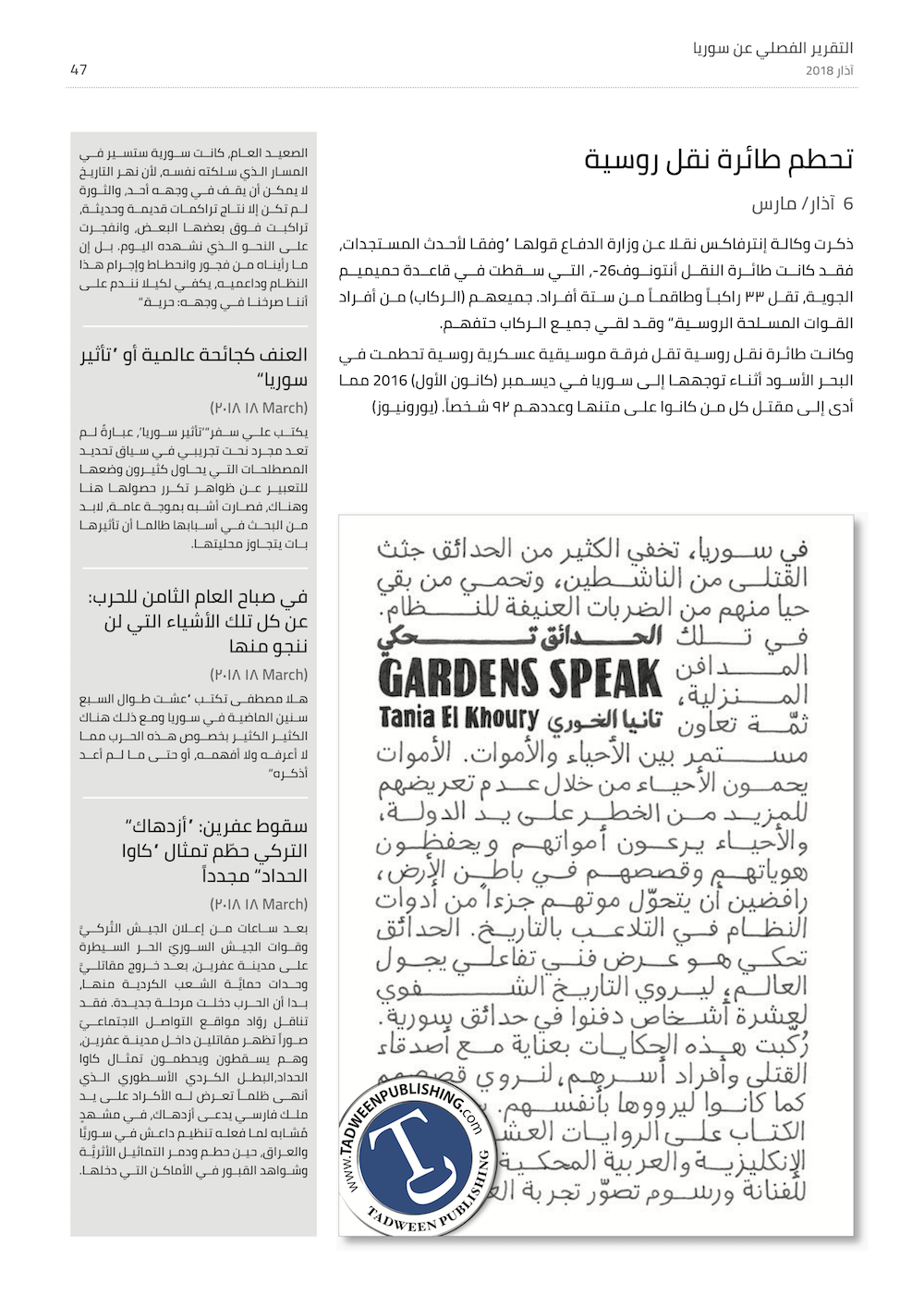Tadween Publishing is excited to announce its new project: the Syria Quarterly Report!
The Syria Quarterly Report is a collection of articles, summaries, and links curated by Salon Syria and Jadaliyya. This report is a collaboration that includes Salon Syria’s weekly summaries and Jadaliyya’s weekly media roundups that address the main events of that week, as well as articles about them, in relation to the Syrian conflict. The Syria Quarterly Report aims to assist in creating a selective but foundational archive of materials from 2018 onwards.
إن هـذا التقريـر الفصلـي عـن سـوريا هـو مجموعـة مـن المقـالات والملخصـات والروابـط التـي اختارهـا كل مـن موقـع صالـون سـوريا وجدليـة. وهـذا التقريـر عبـارة عـن تعـاون يشـمل الملخصـات الأسـبوعية لصالـون سـوريا والتقاريـر الأخباريـة الأسـبوعية لجدليـة التـي تعالـج الأحـداث الرئيسـية التـي تجـري أسـبوعيًا، بمـا فيـه المقـالات المكتوبـة عنهـا والتـي تتنـاول الصـراع فـي سـوريا. ويهـدف التقريـر
الفصلـي السـوري إلـى المسـاعدة فـي بنـاء أرشـيف انتقائـي وتأسيسـي للمـواد بـدءًا مـن ٢٠١8 فصاعـدًا.







